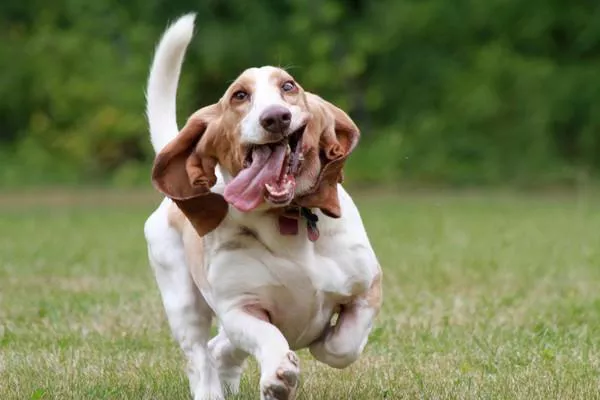Cheese is a favorite treat for many people, but when it comes to our pets, especially Basset Hounds, it’s important to understand whether this dairy delight is a good choice. While cheese might be a tasty morsel for humans, it doesn’t always suit the dietary needs of dogs. This article will explore whether Basset Hounds can safely eat cheese, the potential benefits and risks, and provide guidance on how to treat your Basset Hound appropriately.
Understanding Basset Hounds
Physical Characteristics
Basset Hounds are distinctive for their long ears, droopy skin, and short legs. Their low-slung bodies and keen sense of smell make them excellent tracking dogs. Despite their moderate activity level, Basset Hounds have unique dietary needs due to their body structure and metabolism.
Nutritional Needs
Basset Hounds need a balanced diet that supports their overall health and energy levels. Their diet should consist of high-quality proteins, fats, and carbohydrates. Regular meals should be portioned to prevent obesity, a common issue for this breed due to their sedentary nature and propensity for overeating.
Cheese and Its Composition
Nutritional Content
Cheese is a dairy product made from curdled milk. It is rich in protein, fat, calcium, and other nutrients. While these nutrients are beneficial to humans, dogs process them differently. Cheese contains lactose, a sugar found in milk, and it is this component that poses potential problems for dogs.
Lactose in Cheese
Lactose is broken down in the digestive system by an enzyme called lactase. Many adult dogs, including Basset Hounds, produce less lactase as they age. This reduction means they have difficulty digesting lactose, leading to possible digestive upset.
Can Basset Hounds Eat Cheese?
Lactose Intolerance
Many Basset Hounds are lactose intolerant. This means their bodies do not produce enough lactase to break down lactose effectively. When a lactose-intolerant dog consumes cheese, it can lead to gastrointestinal issues such as diarrhea, vomiting, and gas. If you decide to give cheese to your Basset Hound, do so in very small amounts and observe for any adverse reactions.
High Fat Content
Cheese is high in fat, which can contribute to obesity in Basset Hounds. Basset Hounds are prone to weight gain, and high-fat foods can exacerbate this issue. Excessive fat intake can also lead to other health problems, such as pancreatitis. It’s essential to limit cheese to prevent these potential issues.
Types of Cheese
If you choose to give cheese to your Basset Hound, opt for varieties with lower lactose content. Hard cheeses like cheddar or Swiss have lower lactose levels compared to soft cheeses like cream cheese or cottage cheese. Even then, cheese should only be given as an occasional treat rather than a regular part of their diet.
Benefits of Cheese for Basset Hounds
Training and Enrichment
Cheese can be used effectively in training, as its strong flavor makes it a high-value treat that can motivate your Basset Hound. Small pieces of cheese can be used to reward good behavior during training sessions. However, the quantity should be limited to prevent any digestive issues or weight gain.
Nutritional Boost
Cheese does provide some nutritional benefits, such as calcium and protein. However, these benefits are generally not necessary if your Basset Hound is already on a balanced commercial dog food diet. The risks often outweigh the benefits, making cheese a less favorable treat choice.
Alternatives to Cheese
Healthy Treat Options
Instead of cheese, consider these healthier treat options for your Basset Hound:
Lean Meats: Cooked lean meats like chicken or turkey are excellent treats. Ensure they are free of bones and seasonings.
Vegetables: Carrots, green beans, and peas are low-calorie, nutritious treats that can support dental health and provide fiber.
Commercial Dog Treats: Choose treats designed for small breeds with balanced nutrition and low fat content. Look for treats without artificial additives.
Training Treats
Use small, healthy training treats to reward good behavior. Many commercial treats are specifically designed to be low in calories and fat, making them suitable for training without compromising your dog’s health.
Observing and Responding to Reactions
Signs of Intolerance
After giving cheese or any new food, observe your Basset Hound for signs of intolerance or allergic reactions. Symptoms may include:
- Diarrhea
- Vomiting
- Gas or bloating
- Lethargy
If your Basset Hound shows any of these signs, discontinue giving cheese and consult your veterinarian.
Consulting Your Veterinarian
Always consult your veterinarian before introducing new foods into your Basset Hound’s diet. Your vet can provide personalized advice based on your dog’s health, dietary needs, and any pre-existing conditions. They can help you determine if cheese or other treats are appropriate for your dog.
See also:What to Do If My Shih Tzu Is Not Eating
Conclusion
While cheese might be a tasty treat for humans, it is not always suitable for Basset Hounds. Many Basset Hounds are lactose intolerant, which can lead to digestive issues if they consume cheese. Additionally, cheese is high in fat, which can contribute to obesity and other health problems in Basset Hounds.
If you choose to give cheese as a treat, do so in very small amounts and choose varieties with lower lactose content. Always observe your Basset Hound for any adverse reactions and consult your veterinarian for personalized advice. Opt for healthier treat options to ensure your Basset Hound remains happy and healthy.
By understanding the dietary needs and potential risks associated with cheese, you can make informed decisions about your Basset Hound’s treats and overall diet, helping them live a healthy and balanced life.


